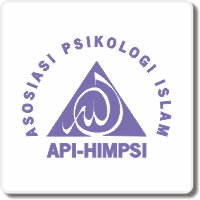HUBUNGAN ANTARA RELIGIUSITAS DAN EFIKASI DIRI DENGAN STRES AKADEMIK MAHASISWA FARMASI
DOI:
https://doi.org/10.32923/psc.v3i1.1702Keywords:
academic stress, pharmacy students, religiosity, self-efficacyAbstract
Academic stress can cause physical problems such as fatigue which can affect student learning processes and motivation. To minimize academic stress, it is necessary to know the factors that influence academic stress in students. Several studies have shown that the higher the level of religiosity and self-efficacy, the lower the level of academic stress. This study aimed to observe the correlation of religiosity and self-efficacy with the academic stress among students at Pharmaceutical Major. 250 active students of pharmacy were involved as the subject in Universitas “Y” in Yogyakarta. The data collection method used in this study was the scale including the religiosity scale made by Nashori (2012), General Self-Efficacy Scale has been adapted into Indonesia Language by Born, Schwarzer, and Jerussalem (1995), and Student Academic Stress Scale adapted into Indonesia Language by Wulandari (2018). The data in this study were analyzed using the correlation of product moment Pearson and doubled regression analysis used the SPSS 16.00 program for Windows. The results of this study showed that religiosity and self-efficacy was negatively correlated with the academic stress of students at pharmacy major. Religiosity and self-efficacy individually and simultaneously had a contribution to 17,1% towards the academic stress of pharmacy students.
Downloads
Published
Issue
Section
License
Copyright Notice
The Psychosophia: Journal of Psychology, Religion, and Humanity is under the Creative Commons Attribution 4.0 International (CC-BY 4.0) License, according to which:
1) Authors retain copyright and grant the journal the right to first publication, with the work simultaneously licensed under the Creative Commons Attribution (CC-BY 4.0) that allows the sharing of articles published with the acknowledgment of authorship and the initial publication in this journal.
2) The authors are authorized to make additional contracts separately for distribution of the version of the work published in this journal (for example, publication in an institutional repository or as a chapter of the book), as long as there is recognition of authorship and initial publication in this journal.
3) Authors are authorized and encouraged to publish and distribute their work online (for example, in institutional repositories or on their personal pages) at any time before or during the editorial process, as it increases the impact and reference of the published work.






